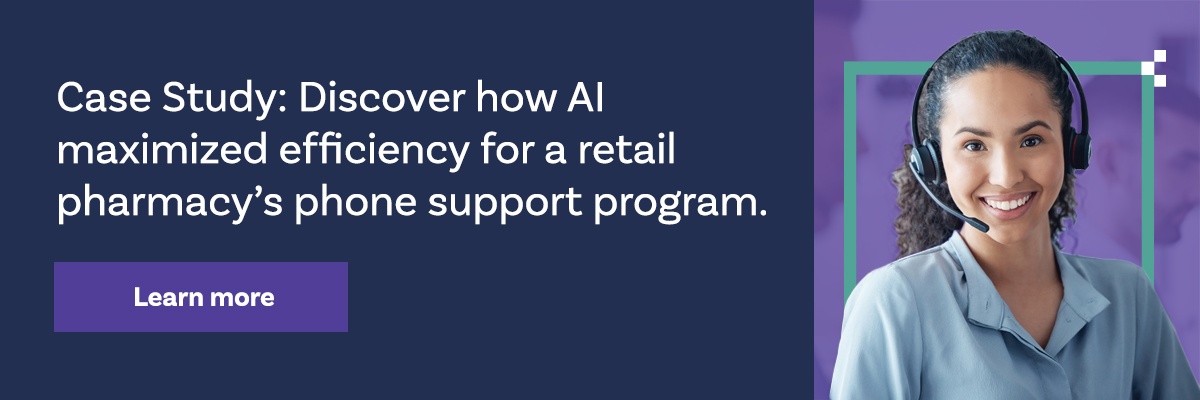The patient experience is paramount in healthcare today. Newly emerging technologies, shifting industry dynamics, and evolving consumer preferences are reshaping what the modern patient experience looks like in the New Healthcare Economy.
That’s why more and more healthcare organizations look to deliver personalized, patient-centric care that increases patient engagement and achieves more positive health outcomes—and artificial intelligence (AI) is helping them get there.
Find out how healthcare organizations are leveraging AI to improve the patient experience.
4 Ways Healthcare AI Helps Improve the Patient Experience
We believe a happy patient is a healthy patient. In many cases, better health starts with ensuring that each individual is engaged and satisfied with their experience. Here are four ways AI can optimize the patient experience:
1. Reaching the Right Patients
Healthcare AI can reach the right patients by identifying who is most likely to need support at any given time. For example, healthcare organizations can use AI to determine which patients are experiencing gaps in medication that may lead to negative outcomes, such as not filling a prescription for whatever reason.
Targeting high-risk individuals allows for a more proactive approach to supporting patients, leading to a better experience and more engagement. AI can also take patient identification a step further by prioritizing patients who are not only likely to experience a gap in medication, but likely to be influenced by an intervention.

2. Personalizing Patient Outreach
Personalization has transformed several industries, and healthcare is one of them. No two patients are the same, and no two have identical needs and preferences. That’s why modern healthcare consumers want personalized care experiences tailored to them specifically.
AI can personalize patient outreach in many ways, determining the optimal intervention channel, content, timing, and frequency to have the greatest impact for each person. For example, some patients may benefit more from an in-person educational session, whereas others will be more likely to respond to a simple text message reminder. Either way, personalization is key to delivering effective, efficient outreach that meets the needs of each patient and accomplishes the intervention goal.
3. Improving Gaps in Medication
Medication adherence is essential in healthcare because it addresses potential gaps in meeting patients’ needs. Rather than operating in silos, an increasing number of healthcare organizations are using technology to effectively coordinate with other parties involved in each patient’s prescribed medication needs. Healthcare AI is beneficial here as well.
For example, AI can pinpoint which patients have red flags in their medication regimen, such as not being prescribed a statin for cholesterol management if they are diabetic. The healthcare organization then has an opportunity to reach out to the prescriber to make recommendations to increase the likelihood of a positive health outcome.
4. Achieving Positive Outcomes
These benefits come together to create a better patient experience for each individual and ultimately lead to what’s most important: achieving more positive outcomes. By taking a more strategic and proactive approach, healthcare organizations can reach the right patients at the right times and intervene in a timely manner—before potential negative consequences come into play.
Optimize the Patient Experience with AllazoHealth’s AI
Healthcare organizations, such as pharmaceutical companies, can use AllazoHealth’s AI platform to optimize patient support programs, improve engagement, and enhance the entire patient journey. AllazoHealth’s AI unlocks efficiencies by predicting the right engagement tactics, at the right times and through the right channels, prioritizing and scaling efforts on at-risk patients and removing redundant, ineffective communications – and resulting in up to 25% lower spending on operations.
